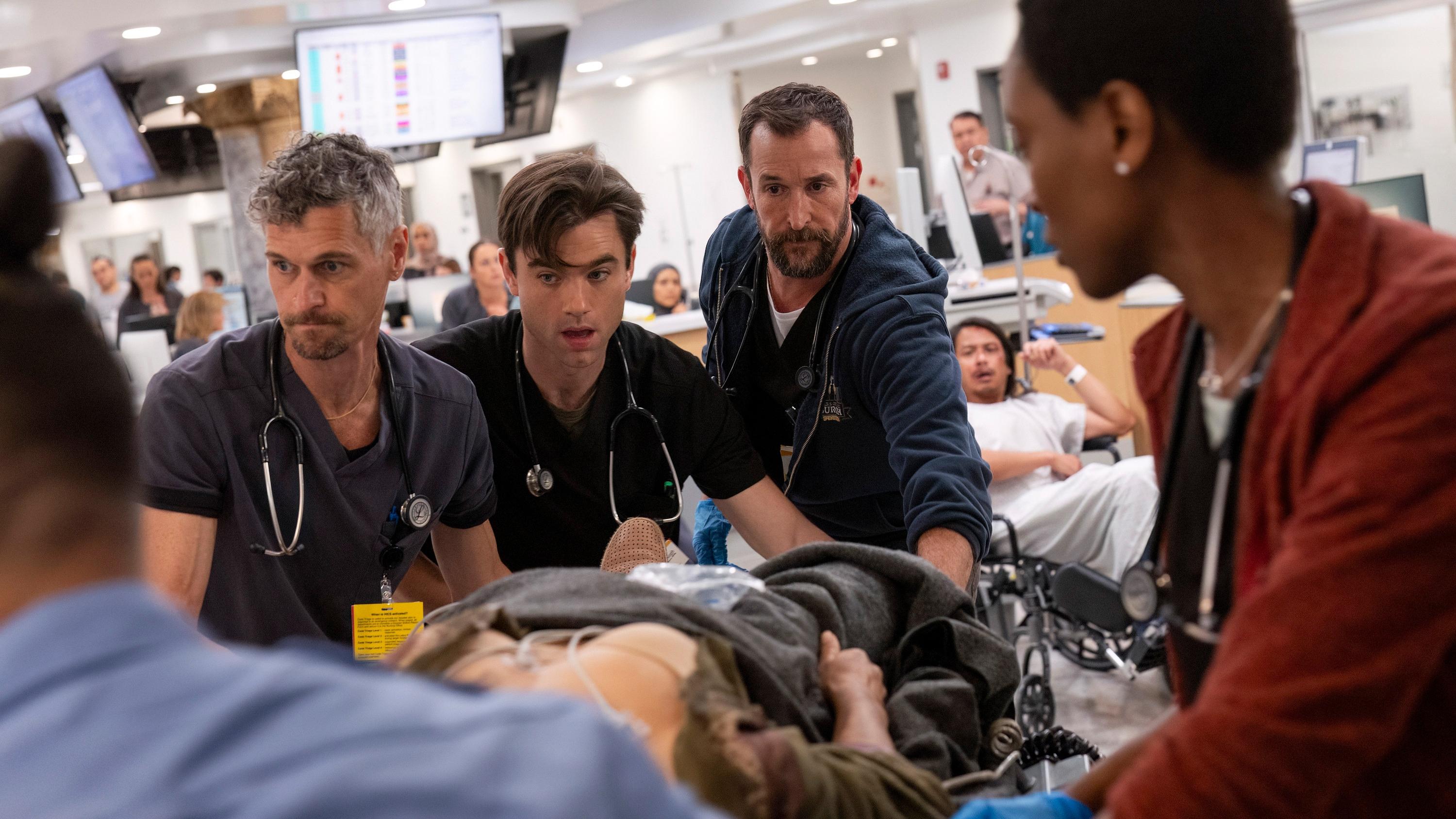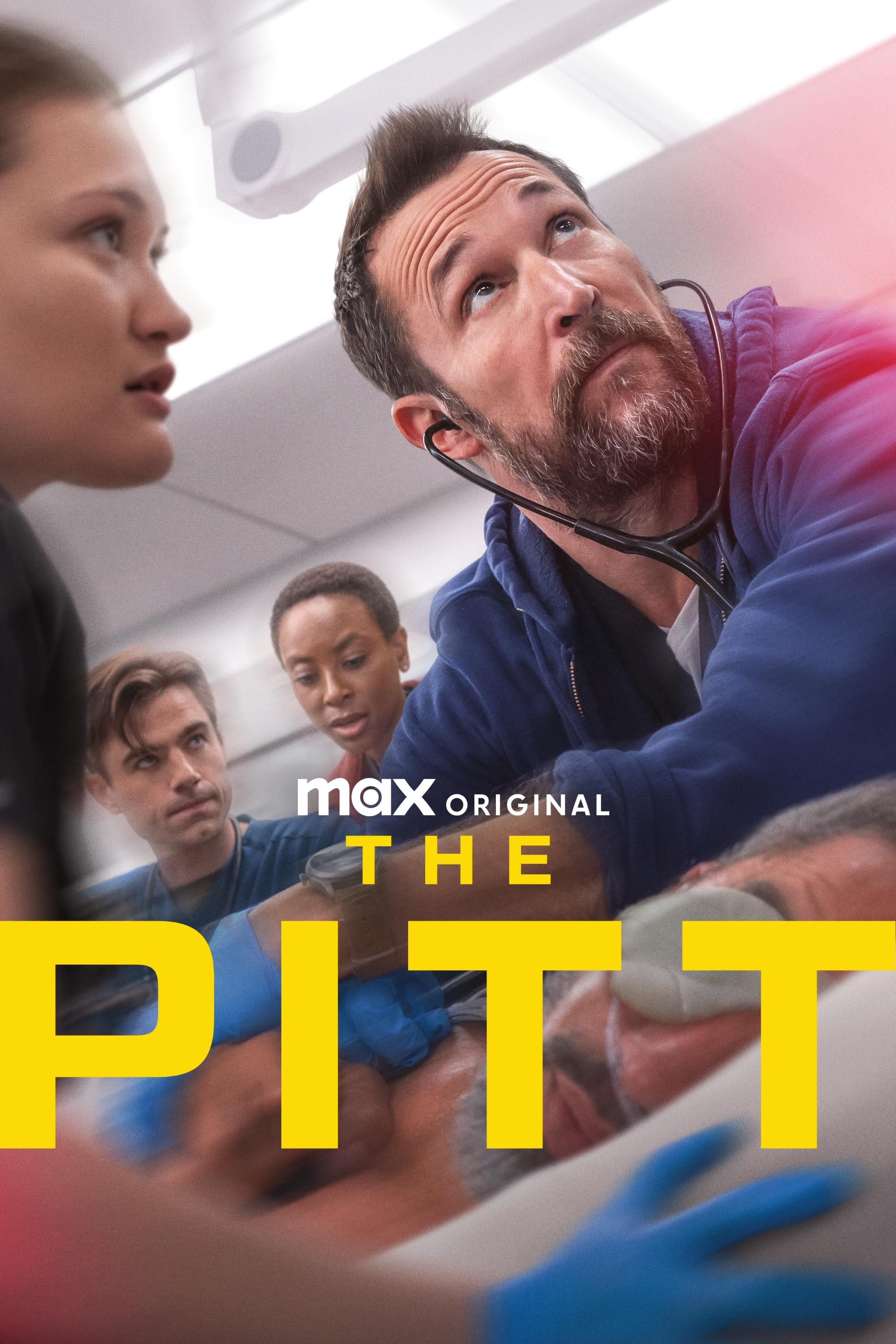
The Pitt (2025)
The Pitt (2025)
| “If you want people to be happier, don't make 'em wait for twelve hours.”
Finally, a more realistic medical drama. It's like the medical genre in general has a bunch of sub-genres – beginning with the soap opera medical drama (GREY'S ANATOMY) to the “hyper-intelligent character” medical drama (a bunch of k-dramas fall into that category, but I have watched none of them) to the “smart expert making all the decisions and schooling every other doctor” medical drama (HOUSE, M.D.) to medical dramas in specific places that makes it hard for the doctors to do their job (COMBAT HOSPITAL – I'm currently watching that one, too) to comedic medical dramas (SCRUBS and ST. DENIS MEDICAL) to those that focus on their special lead character (THE GOOD DOCTOR) and to those that focus on a specific field of medicine (THREE RIVERS, organ transplants). And then there are those shows that just want to be realistic when it comes to how busy hospitals can get (CODE BLACK) or how difficult the healthcare system and bureaucracy make it for the doctors (NEW AMSTERDAM and THE RESIDENT).
I would rather watch shows from the latter subgenre, so I'm especially thankful that Warner Bros. and John Wells decided to do another take of ER. So much so that the estate of ER creator Michael Crichton (mainly his wife) decided to sue the studio because they thought that ER was being remade without their approval. Someone should tell them that the premise of an ever-busy emergency department with overworked and underpaid doctors, not enough nurses, too many patients, and blood and gore is not a premise that specifically belongs to them.
THE PITT throws you right into the deep end, because the first 53 minutes had the characters busy with work and patients. And with luck and some good writers, the real-time aspect of the show could help develop some of those patient characters and stories, with any of them having the potential to pause for various episodes, just to return at a later hour. The 18-year-old kid who harbors feelings for killing his female classmates is a good example here. Maybe the kid is just confused and angry after living with teenage hormones through a chaotic pandemic, but maybe he really is a budding school shooter and mass murderer, and his victims will be rolled into the pitt in a couple of episodes, with his mother feeling the sense of dread and tragic for not having helped her son enough.
The story of the Nepalese woman could also be one of those cases – it's unclear how exactly she came to land on the train tracks, but here she is, with the doctors asking themselves if she was pushed or if it was a suicide attempt. ER almost always told its patient storylines with an open end, sometimes the audience never got the conclusion to a case. But THE PITT has the advantage that the patient storylines don't end when the episode does, because the patient will still be in the emergency department, at least during the next episode, where the writers could continue telling those stories. That's Exhibit B of THE PITT being anything unlike ER, and the Crichton estate not having any grounds to sue.
Exhibit C would be the real-time aspect, but just like in 24, there isn't much to be had in that regard. There are so many characters in this episode that the real-time aspect is quickly forgotten, especially when there are still cuts in the story to suggest that a couple of seconds, maybe half a minute, have just been removed for the sake of pacing. Doctors Robby and Jack Abbott going from the roof of the building to out of the elevator and into the emergency department was one example – that was done in a quick cut, and we never got to see or hear what the two were talking about during the elevator ride.
This show already has too many characters, so I barely remember their names – something the next episode should be working on, by continuously having the characters call each other by their (nick-)names. It didn't help that the newly arrived medical students weren't the center of attention here, as they could have served as the audience surrogate, learning the surroundings and about the people with said students who had to do the same as the viewers. It's what worked well in the pilot movie of ER, where Noah Wyle played medical student John Carter, whose first-day journey through the ER department in a 24-hour shift was created to give the viewers an overview of what is what and who is where. That wasn't present in this episode, making it a little harder to grasp the space the characters inhabit.















